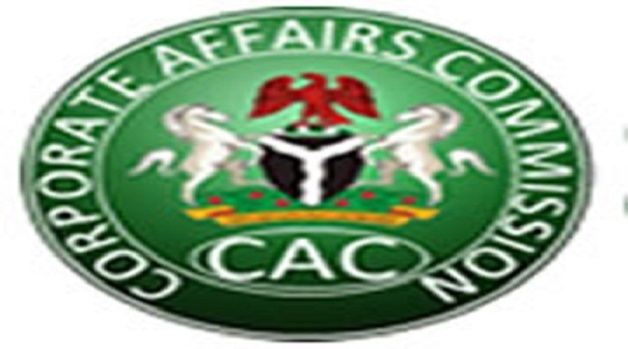News
Babock University Deploys TCR Academic Technologies

Babcock University, Ilesan Remo, Ogun State has raised the bar in education technology by becoming the first university in Nigeria to embrace a Total Classroom Revolution.
TCR will wirelessly connect all undergraduates, post graduates and Certificate students; lecturers, School Administrators and Parents to classrooms, Chapel, Halls of Residence, Library, and Cafeteria in a campus-wide Platform.
When completed, the project will help to accelerate students learning, research and social collaboration using a combination of some of the latest and best- in- class advanced education technologies that can only be found among the top universities in the world.
The projects sits well with Babcock trademark of continuous pursuit of academic excellence so that both lecturers and graduates of Babcock university are exposed to the same cutting- edge education technologies like their counterparts in Europe , Asia and American universities.
The technologies will connect both lecturers and students in real time live for collaboration, learning and problem solving.
The technology also ensures, through the use of a special tool, the fastest route possible towards content creation, authoring and publishing capacities for lecturers.
Besides, parents are integrated into the world of real- live education development of their wards. All lecturers of the university will undergo Technology appreciation training to enable them optimize the full potential of the package.
Babcock university working with a consortium of six companies from Canada, Israel, Germany, USA , France, and India will ; with effect from next academic session ; provides each student of the university with an educational- purpose- built 10.1” Babcock Learning Tablets ( BLT) that comes with a special browser that allows students to SURF -FOR -FREE for the duration of their academic session both on and off campus.
The BLT comes each with a solar charger that also serves as keyboard designed to double the life span of the battery of the tablet.
The BLTs are products of a Canadian company with eighteen patents for its peerless education Learning Tablets that have revolutionized education in the UK, Canada and India.
The special Tablets built for Babcock students come a new technology that compresses bandwidth to ensure students have free access to basic internet facilities meant for education purposes only not only while they are on campus but even while at home during vacation.
The package also integrates In- Motion- Identification Biometrics (IMID) which is the latest and most advanced biometrics in the world today.
IMID is an Israeli patented innovation that allows for identification and authentication of students while in -motion from a distance without the usual delay and health challenges that are associated with legacy biometrics technologies.
The biometrics can identify up to eight students at once – using their behavioral, voice and facial characteristics.
The technology will be deployed at Babcock university Halls of residence, Cafeteria, and Chapels in the first phase.
Third on the list of TCR component is the implementation of Advanced Learning Management system (ALMS) which allows seamless recording of the video and audio lectures delivered by lecturers and archiving of those lectures to make it easier for students to review time and time again.
Babcock university lecturers will benefit immensely from its content creation and authoring tool that puts them at the driver seat of converting their content to books and hand-outs at the speed of light.
Thus, Babcock has become the first university in Africa to join the league of the Top Global 100 universities that use the Germany solutions to drive both students and lecturers productivity. Furthermore Babcock will have access to over twenty features on ALMS such as student attendance and participation in classroom, Social Jam ,etc
The software components of the Total Classroom Revolution are sourced from four countries – Nigeria, USA, France , India.
The software includes but not limited to a robust schoolApp , anti- theft for all the students Tablets, PUSH Communication and APPLICATION technology using Firmware Over the Air( FOTA), Student Management System etc
Two topmost Nigerian banks are providing the financial power to the Consortium handling the project.
In addition, each lecturer of the university will get one laptop that connects them to their fellow lecturers and students on campus. Each of the five hundred classrooms will be fitted with one wireless projector; U- POINTER and Inverter to support the Total Classroom Revolution.
A combination of U-Pointer and wireless projector will replace the expensive legacy white interactive board, thereby reducing the capital expenditure of the university.
A 360 degree Internet Security will also be provided to protect the hardware and software from virus, malware, ransom ware, worms and other cyber threats.
“The ALMS helps students/lecturers interact seamlessly in a way that students can connect to their lecturers laptop using the software on their Tablets and if for any reason they are not able to be in class they have an option of participating in the “live”class activities, receive lectures via telephone/video feed. Students can form online study group/discussions on different subjects,” according to the Consortium managing the project.
The project will see the deployment of 12,000 customised Babcock Learning Tablets (BLT) for students with 32 Gigabit android powered 10.1 inch tablets.
According to Mr. Akin Akintayo, IVETEC -WiniGroup project manager the company coordinating the six consortium of companies ” An ALMS Control Room and Hardware maintenance and service centre will be established on the campus by the consortium to drive technology skills transfer, servicing and repairing of tablets , laptops and other hardware development. The Center will be manned by qualified, experienced Hardware and Software Engineers drawing from among Babcock university graduates of Computer Science department.
Professor J Kayode Makinde, Vice Chancellor of the university, sees the Total Classroom revolution as ”Another evidence of the Babcock University Management’s unwavering commitment towards the continuous achievement of academic excellence that Babcock is known for since its inception.”
Professor Kayode Makinde believes that “This new project will further consolidate the leadership position of Babcock as a pacesetter and the best in the league of private universities in Nigeria’.
News
NITDA Supports CAC AI Driven Transformation

By Oluwole Alao
Kashifu Inuwa CCIE, the Director General of the National Information Technology Development Agency (NITDA), has pledged the Agency’s full support for the Corporate Affairs Commission’s (CAC) artificial intelligence–driven transformation as the Commission marked its 35th anniversary in Abuja.

Delivering a goodwill message at the celebration, which was held at the Ladi Kwali hall of the Abuja Continental Hotel, Inuwa commended CAC for its uncommon consistency and resilience, noting that while many organisations rise and fall after initial success, CAC has continued on a steady growth trajectory.
“We know organisations go up and come down, but some will keep thriving, thriving, and thriving, and today, this is what we are witnessing for CAC,” he said.
Reflecting on his early engagement with the Commission, the NITDA boss recalled that the Registrar General made organisational transformation a priority from the very start of his leadership, particularly in embracing digital innovation.
According to Inuwa, the current era demands more than basic digitisation, stressing that meaningful transformation can only be achieved through the integration of artificial intelligence into core operations.
“We are in the AI era, and the only way to transform today is to embrace and integrate AI into your operations. This is exactly what the Registrar General is doing,” he stated.
He assured CAC of NITDA’s commitment to working closely with the Commission to embed AI across its numerous processes, explaining that the technology would infuse intelligence into workflows, simplify company registration and business management, and strengthen cybersecurity.
“We will make sure you integrate AI into CAC processes. With AI, it will infuse intelligence in everything you do and make things easy for Nigerians to register companies and manage businesses,” Inuwa averred.
The NITDA DG added that deploying advanced AI tools would help CAC staff stay ahead of fraudsters and curb hacking and fraudulent alterations of company records, while also safeguarding the system through responsible deployment.
“At NITDA, we will make sure you deploy ethical and responsible AI in your operations, with the right guardrails in place,” he assured.
He further described CAC’s digital reforms as bold and impactful, noting that the Commission has reduced company registration timelines from several months to as little as 24 hours. He added that further integration of AI would enhance name search and reservation, automate filings, improve corporate governance, and significantly reduce fraud.
He also highlighted NITDA’s ongoing role in reviewing CAC’s digital and AI transformation roadmaps, providing guidelines, standards, training support, and safeguards to ensure sustainable, people-centred, and secure digital services.
The NITDA DG congratulated CAC management, staff, and members of the National Assembly for their support, expressing confidence that the partnership would further strengthen Nigeria’s digital business environment in the years ahead.
News
U.S. Slams Nigerians: Overstays Jeopardize All Visas

The United States has warned Nigerians that overstaying their visas could jeopardise travel opportunities for other citizens seeking to visit the US for education, business, or family purposes.

The warning came amid ongoing immigration crackdowns and tighter travel restrictions under the administration of President Donald Trump.
In a statement posted on X on Monday, Feb. 9, the U.S. Mission in Nigeria stressed that compliance with visa rules is essential to protecting access for Nigerians who travel responsibly.
“Visa overstays by Nigerian travellers can affect opportunities for their fellow citizens,” the Mission said. “Strengthening compliance helps protect access for students, business travellers and families who travel responsibly.”
The Mission also urged Nigerians to report cases of visa fraud to [email protected] or [email protected]
News
CAC Pushes Single National Register to Curb Corruption Loopholes

Nigeria’s Corporate Affairs Commission (CAC) has urged creation of a unified national beneficial ownership register to bolster anti-corruption efforts and corporate transparency.

CAC
CAC Registrar-General highlighted how fragmented sectoral registers breed duplication, inconsistencies, and regulatory gaps during the Commission’s 35th anniversary Anti-Corruption Day in Abuja.
ICPC Chairman Dr. Musa Aliyu, via representative Demola Bakare, praised CAC’s role in fostering accountable business environments that drive sustainable growth.
Global evidence links transparent institutions to stronger economies, with clear rules, accessible data, and open operations as key pillars.
CAC’s oversight on company registration, disclosure, and compliance directly builds investor trust and national integrity, closing avenues for illicit financial flows.

 Telecom2 days ago
Telecom2 days agoNCC Committed to Regional Digital Integration – Maida

 General News2 days ago
General News2 days agoIndigenous Firm Deploys 400,000 Smart Electricity Meters in 2025

 E-Financial2 days ago
E-Financial2 days agoCBN Expresses Concern Over Foreign Investments in Nigeria Fintechs

 E-Financial2 days ago
E-Financial2 days agoBOI Secures CBN Nod for Sharia Banking, Unlocks Ethical Funding Boom

 Telecom2 days ago
Telecom2 days agoITU Top Director Visits NITDA, Boosts Nigeria’s Digital Literacy Push

 E-Financial2 days ago
E-Financial2 days agoUBA’s Easy and Instant Account Opening Thrills Returnee

 News2 days ago
News2 days agoEFInA Unveils Research Fellowship Programme to Deepen Financial Inclusion Impact

 Telecom1 day ago
Telecom1 day agoSafer Internet Day: Sophos Warns – 42% Attacks Hit Stolen Logins in 2025



























